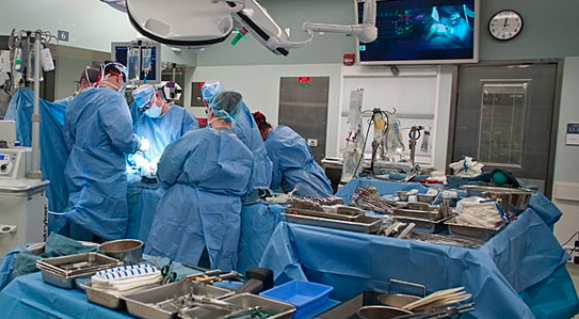Medical research shines in latest NHMRC funding

Researchers investigating influenza, multiple sclerosis and Indigenous health will share in $60 million funding from the prestigious National Health and Medical Research Council grants.
More than $59.6 million has been awarded to the University of Melbourne and affiliates as part of the $483 million allocated by the Federal Government.
Anaesthetists will use $4.8 million to study whether using the drug ketamine as part of a patient’s anaesthesia, and for post-operative pain relief, can help prevent them developing chronic pain after major surgery.
Melbourne Medical School Professor and Chair of Anaesthesia David Story said currently, large studies show at least one in eight patients who have major surgery – particularly abdominal, thoracic or orthopaedic surgery – develop long-term pain afterwards.
“The ROCKET study (Reduction of Chronic Post-Surgical Pain with Ketamine) will give us a focus for this investigation,” Professor Story said.
“We know that chronic pain can have a huge impact on the patient’s quality of life and also becomes an economic cost for society because people find themselves working less and seeking medical care more,” Professor Story said.
Peter Doherty Institute for Infection and Immunity Human T-cell Immunity Laboratory Head Katherine Kedzierska has been awarded a grant to better understand why hospitalisation and death rates from influenza are high in the Indigenous population, especially when a new virus emerges.
“There is an urgent need for a vaccine that protects against all influenza strains. However, some ethnic groups show limited immunity response to the effects of influenza,” Professor Kedzierska said.
Faculty of Medicine, Dentistry and Health Sciences Dean and Assistant Vice-Chancellor (Health) Shitij Kapur,said the NHMRC grants recognised the quality and impact of research at Melbourne.
“These awards will enable the University and our partners in medical research institutes and hospitals to improve health and well-being for all Australians,” Professor Kapur said.
Other research projects include:
- Dr Anneke Van der Walt from the Melbourne Brain Centre at Royal Melbourne Hospital, Department of Medicine, will establish a research program to study two disabling symptoms of multiple sclerosis (MS) namely upper limb shaking, or tremor, and memory dysfunction. The first project will develop a new treatment for MS arm tremor, Botulinum toxin injections, into routine clinical practice. The second project aims to make available a computerised test of memory that can be done in clinic waiting rooms or at home. This will help neurologists to rapidly pick up changes in memory in a person with MS and improve care.
- Dr Katherine Gibney from the Doherty Institute of Infection and Immunity is leading a program to improve the extremely high rates of infections such as skin sores among Indigenous Australians in remote communities. She will study the mobility and social interactions of Indigenous people in remote communities in the Northern Territory to better understand how infectious diseases spread throughout these communities. This information will be used in mathematical models to plan the most effective strategies to permanently reduce the burden of infectious diseases among the population
- Professor Monica Slavin, from the University of Melbourne and a specialist infectious diseases clinician with the Royal Melbourne Hospital and Peter MacCallum Cancer Centre, will steer a Centre of Research Excellence to improve cancer outcomes through better management of infections in cancer patients. Opportunistic infections are a real risk for cancer patients. She and her team will establish new research networks to detect emerging multi resistant infections and develop guidelines on how to manage them.